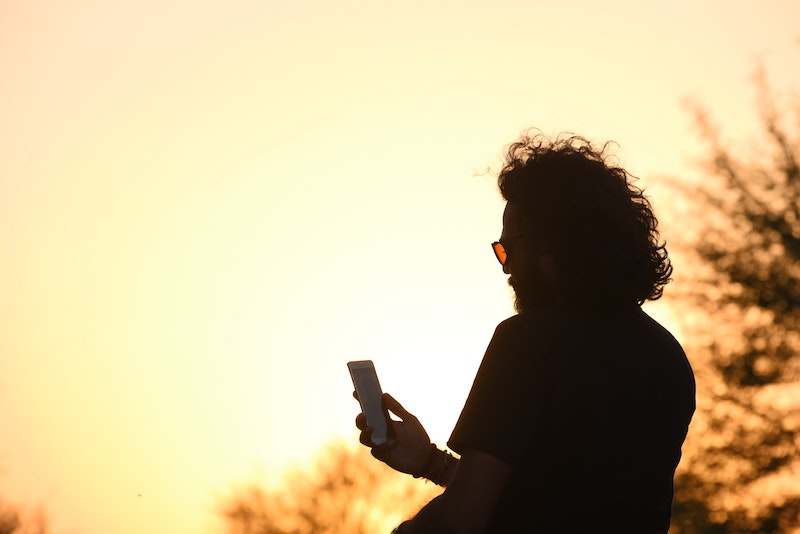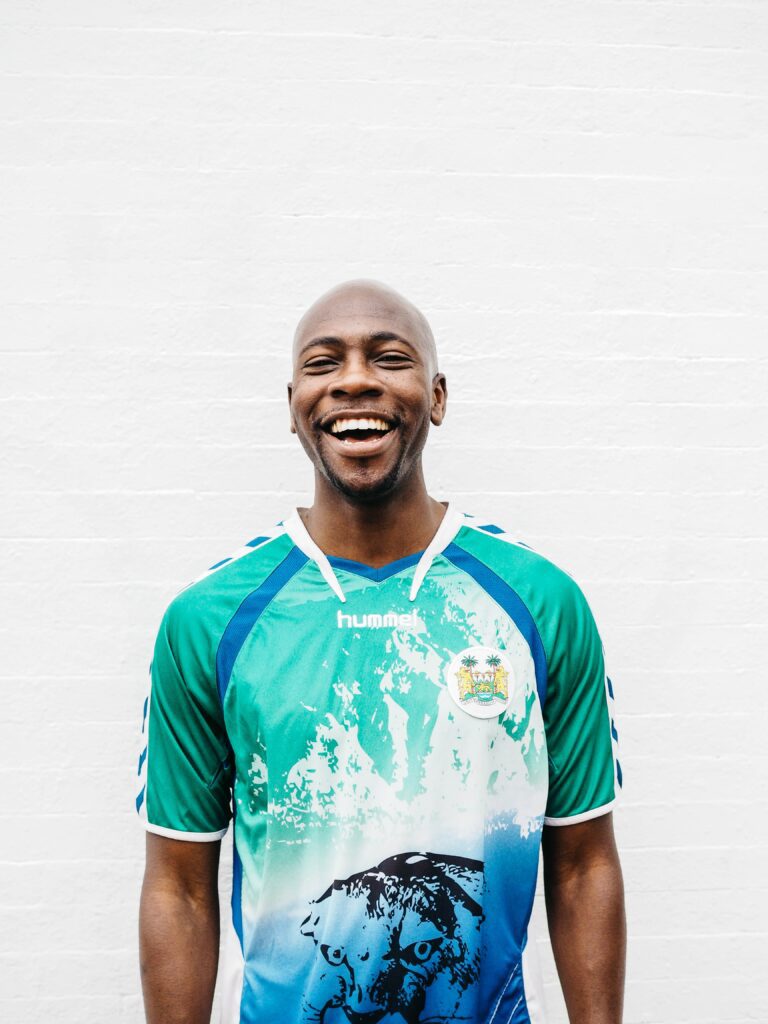THE BASICS OF ANXIETY
What is anxiety?
Honestly, the word anxiety gets thrown around a lot. Anxiety is a medical diagnosis with established diagnostic criteria. Below are everything about anxiety that you need to know about.
What are the 6 main symptoms of anxiety?
- Being especially alert, restless, on edge, or feeling overwhelmed without a clear reason
- Difficulting concentrating: feeling like your mind is blank or too full to pick a thought
- Altering between being very alert and agitated to being very tired and unable to do things
- Agitation, that is accompanied by irritability or shutting down
- Physical tension, discomfort, exhaustion, and health issues
- Sleep disturbance: sleeping too much, not sleeping enough or well.
Anxiety means you are fearful and worried that bad is going to happen, even if there’s not a threatening situation present. Essentially, if several people were all in your situation, they may not feel anything was wrong, but you do.
How is someone diagnosed with anxiety?
The diagnosis that most people are referring to when they refer to anxiety is Generalized Anxiety F41.1. Then, there are many sub-types and specific types based on the specific symptoms you are dealing with. If you are reading this, there is a good chance that you think that you or a loved one is living with anxiety symptoms.

First, I want to remind you that anxiety is not a virus or an illness. Rather, it is a common set of experiences that people share. You don’t catch anxiety. But, you can inherit it.
What causes Anxiety?
There is debate about whether anxiety is passed down genetically or environmentally. Most people with anxiety remember feeling anxious to some degree their whole lives. Or, symptoms of anxiety began around puberty. In these cases, anxiety was likely a part of your home life in some way or another. Or, a product of how your brain was formed and then reinforced by the environment. I won’t try to end the ‘nurture versus nature’ debate here. But, if you were raised in an environment with anxious people (that’s most of us), you are more likely to be anxious yourself.
When does anxiety start?
Anxiety can also occur after trauma, childbirth, life change, or intense grief or loss. In those instances, it may be time-limited. In some cases, anxiety is not time-limited even when it seems to be a clearly sudden onset.
The reality is that there may or may not be clear roots to your anxiety.
Most of the time people want to know why they have anxiety. It’s not from a place of true open curiosity, but a thinly veiled attack. What we’re really saying is ‘why are you like this?’ That translates to ‘you’re screwed up, explain yourself.’ As tempting as it is to chase down a ‘why’, it really doesn’t matter much in the end. The task is the same. Learn about what’s going on internally so that you can figure out what helps you live a better life with anxiety. Or, so you can have less anxiety. So here is the million-dollar question:

Does anxiety have a cure?
Yes and no. Because anxiety isn’t a bacteria or a virus we can’t treat it with a 10-day course of meds and expect it to go away. Anxiety is the result of hardened wiring in the brain that creates automated responses to your environment. Often, without you even knowing it. So the cure for anxiety is changing the neural connections in your brain. I’m not kidding. This is good news and bad news.
The good news…
The good news is that we have something called neural plasticity. This means we can change the neural wiring in our brains. If you want to blow your own mind, consider this. Our brains make our thoughts, but our thoughts can physically change our brains. So there it is. The cure for anxiety is changing your thoughts.
Changing our thoughts is not done via self-aggression as cultural norms would have us believe. In fact, you likely already know this. If you could have cured yourself of anxiety by telling yourself to stop thinking like that, we all know you would have gone ahead and done that.
The bad news…
The bad news (or rather less fun news): There is no quick fix. The changes in our brains that diminish our experience of anxiety are slow. But, they are long-lasting. It is absolutely possible that you could experience high levels of anxiety most of the time and get to a place (with good therapy) where anxiety rarely impacts your well-being.
How do you treat anxiety?
The best anxiety treatments a combination of therapies. Exactly which combination will depend on the person. Generally, Cognitive Behavior Therapy (CBT) or Dialectical Behavior Therapy (DBT) are great choices. However, our most successful in concert with a mindfulness and body awareness approach.

Why CBT or DBT for Anxiety?
Remember how we said that we can change our minds with our thoughts? Well, Cognitive Behavioral Therapy is a structured way of bringing awareness to your thinking. This helps you to determine which sort of thoughts are helpful and which are not. Dialectical Behavioral Therapy is a spin-off of CBT. It was developed specifically for Borderline Personality Disorder. But, is actually CBT + in ways because it uses the strong foundation in CBT and then adds in more mindfulness and body-based components.
Why Mindfulness?
Mindfulness is by definition being more aware of our mind and what we are thinking and feeling. Increasing our awareness of our thoughts and feelings is the basis of anxiety therapy. This is a simple and powerful first step to treating stress and anxiety. Simply making time to pay more attention to the hum beneath our multi-tasking, without even changing behavior, only awareness, allows you to make meaningful gains in your relationship to your anxiety.
There is a method to the madness!
Once we know more about what is going on behind the anxiety, we feel we have some rich places to start building custom skills for diminishing the power and frequency of the anxiety. We may start by working with something to do when you are anxious. This looks like walking, breathing, exercise, hugs, rest, or drinking water. Often while we are working in anxiety therapy on reframing thinking we start with body-based actions first.
All of these treatments for anxiety are natural and effective. However, there are times when it is ideal to consider
Can you treat anxiety with medications?
Medication can be a very good thing for people who are struggling with anxiety. When and how to start medication treatments for anxiety can be confusing. Here are the top 3 considerations for using medication to treat anxiety.

1.When to c0nsider meds:
If you are unable to work, leave your house, take care of yourself or your kids, or you feel unsafe. then you may need medication. Essentially, if you are deeply struggling to get through your day it is time to get seek psychiatric assistance. Even if you want to be able to use psychotherapy and natural remedies for anxiety, once you get to this level of distress it is very hard to do withiout the help of medication. It can be done, but certainly, using medication should be part of the treatment conversation.
The other time to consider psycho-pharmaceuticals is if you want to. This is your body and your well-being. If you want to use medication to treat your anxiety do it.
2.Who perscribes them:
Your psychotherapist can not prescribe you medication. They will however be helpful in helping you track the effects if you are seeing them regularly. It is highly recommended that you consult with a psychiatrist for medication consultation and prescription rather than seeing your primary care doctor. Your regular doctor can prescribe medication for anxiety. However, they are not going to be able to give you the level of expertise in the field that a psychiatrist can. A psychiatrist is a specialist. Seeing a general doctor for psychological medications is like seeing them for heart problems. Is it better than nothing, but you really need a cardiologist. It will maybe a several-week wait to see a psychiatrist, but I assure you that it is worth it.
3. How to use them:
Do make sure to take the medication precisely as it is prescribed. Many medications for anxiety don’t work or work differently if they are not taken as prescribed. Additionally, if you take them differently it becomes hard to track how they are working, which is a big part of the process. It is rare that a person seeks mental health meds and just gets the right medication and right dose immediately. Be prepared that it may take a little bit to get your brain’s best match.

Don’t forget anxiety therapy!
Anytime you are thinking about using medication to treat mental health symptoms it is best if you are also accompanying the medication treatment with psychotherapy treatment. The medication can do well to ease some of the distress that comes with anxiety but it is unlikely to make the deeper changes in cognition and self-awareness that allow for a real feeling of emotional freedom and responsiveness.
Everything About Anxiety and Biology of Anxiety
It’s important to understand what is happening in your body when you feel anxious. Most of us know about fight, flight or freeze, responses, but a general re-cap is that when we feel in danger our body will automatically prepare to fight, run, or it will freeze. This is a miraculous program that runs automatically when we encounter danger (like being attacked). When you have anxiety, the brain turns on the fight, flight, or freeze response when there is no current danger.
What is the fight, flight, or freeze response?
When you are anxious, there is some part of you that is funneling energy to the job of keeping you safe from danger that doesn’t actually exist. Then, your body preps to save you from the no-existent danger. Imagine this happening all the time. It’s exhausting. It is hard on the body and can have long-term effects on health and well-being.

Why you may feel hypervigilant and then totally exhausted.
Often people who are anxious spiral through depressive states. I call it anxiety-based depression. That means that you are anxious, but when you can no longer sustain the level of energy it takes to be anxious, you crash into a state of depression. This helps your nervious system and body compensate for all the energy you use being anxious.
Whether you experience depressive episodes or not, anxiety is nuanced.
When you are in the animal or survival part of your brain, there is less connectivity and firing in the pre-frontal cortex. This is where the bulk of our higher thinking takes place. Great things like creativity, problem-solving and rational thinking happens in the pre-frontal cortex.
Most anxiety response occur in the bottom parts of the brain like the amygdala and hippocampus. This means the best parts of your grown-up brain are not working well during anxiety. And, if you’re really freaked out, they may not work at all.
I will not go into why this all makes good sense if someone is attacking you, but as you might guess, diminished higher-level thinking when you’re anxious is not very helpful for getting out of anxiety. Even if you can get great work done while you’re anxious, it unlikely that you can talk yourself out of anxiety because they are very different functions. Generally, people’s attempt to talk themselves out of anxiety sounds like this ”hey dummy, what’s your problem, stop being anxious. We’re totally fine. Get over it.” This does not work. Being mean to yourself doesn’t work.
This is why we start with noticing our internal dialogue when we are anxious.
The information we get about how we talk to ourselves will help us understand what will actually calm us down. So we start with camping activities that calm the body. This will, in turn, calm the mind enough that we can start to have more rational, creative, and kind thinking. Something simple like deep breathing for a few minutes makes the body to calm and essentially tells the brain it is safe to relax. The science behind this is awesome, but we will leave that for another blog.
Related Reads
- How to challenge anxious thoughts: guest blog by Christy Pennison
- Quick Guide for Managing Anxiety at Work
- Therapy For Dating
- Signs of Depression Test & Diagnostic Information for Patients
- What Happens In Anxiety Treatment?
- A Depression Therapist in Boulder, CO Explains The Difference Between Sadness & Depression
- Recognizing and Understanding Triggers
- How Focusing on Your Faith Can Help with Depression & Anxiety
- Why People Misunderstand Anxiety
- 4 Healthy Ways to Distract Yourself from Anxiety
- How to Have a Better Panic Attack

Where to start with anxiety treatment
If you think you may have anxiety and that you would like to have less, the best place to start is by finding a psychotherapist or psychologist. They are the specialists in the field for diagnosing and treating anxiety disorders or anything else that is standing in your way of living the life you want. Mental health professionals are experts at helping you face your fears, reduce your worry, and they can help you start living life to the fullest.
How to find a therapist
Ask friends if you know anyone who has a counselor that they like. If not, ask Google. Search engines will come up with many options. Read through the website some to get a sense of the counselors, or just contact them. You could ask for a consultation or just start with a session and see how it goes.
The number one most important aspect of your relationship with your therapist will be that you feel comfortable talking to them. The second will be if you feel you are making gains with them. But remember, you can not get to good gains if you don’t feel like you can be yourself.
Also, if you want to use insurance for your sessions contact your insurance company. If you are unable to pay for therapy at full fees, look for community counseling centers, online therapy options or go to your state or county mental health agency. These places often have resources for income-based or reduced fee psychotherapy sessions.
What to do now
If you read through this whole thing you are likely experiencing anxiety. So what you can do now is be kind to yourself, be patient, and know that it can get better. You deserve to feel better, and you CAN feel better. So, do a quick Google search for a therapist in your area and reach out. Send an email or call and leave a voicemail message. Even if it’s 2am. An established therapist will have a way to initiative contact at any hour of the day and should get back to you in 1-2 business days. Look in the community. As always if you need help right now, go to the emergency room or call 911. The local authorities can get you safe and start the sequence of getting you support.
Begin Anxiety Treatment in Boulder, CO
You are not alone. Anxiety is part of humanity. You are not broken. You’re experiencing life on a volume that is too high. While it is not your fault, there are things you can do to make your life feel better. You got this. And, we can help. Our approach to treatment is evidence-based and effective. Our anxiety therapists have extensive experience providing anxiety treatment to a variety of people. When you’re ready to begin anxiety therapy in Boulder, CO, follow these steps:
- Contact our group practice.
- Request an appointment to learn more about our approach to anxiety treatment.
- Regain control of your stress and worry.

Other Counseling Services in Boulder, CO
- Online Therapy
- Therapy for Women & Therapy for Men
- Depression Counseling
- Postpartum Anxiety Treatment
- Eating Disorder Treatment




